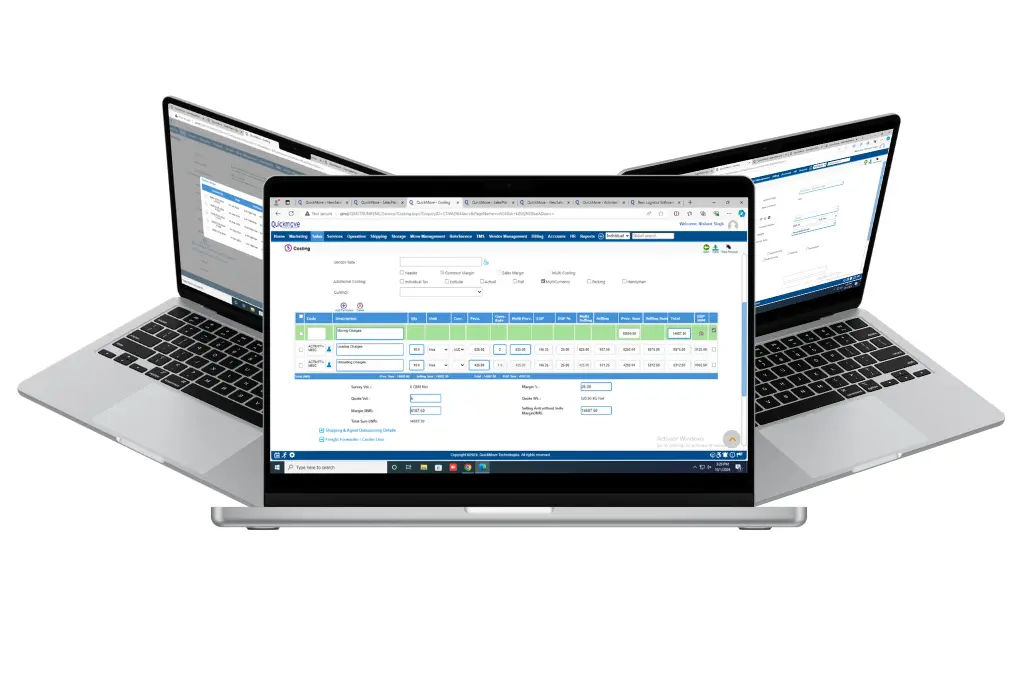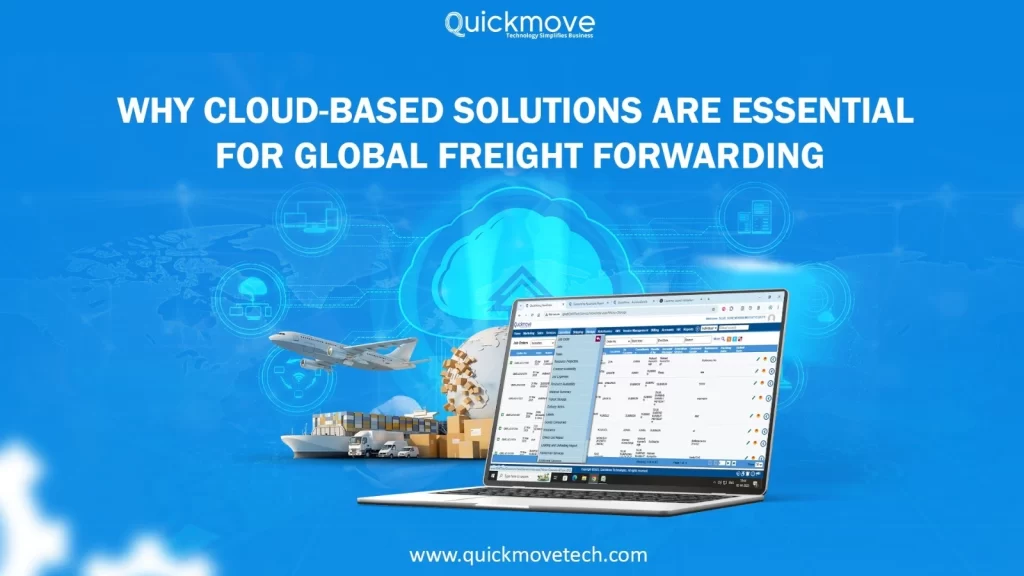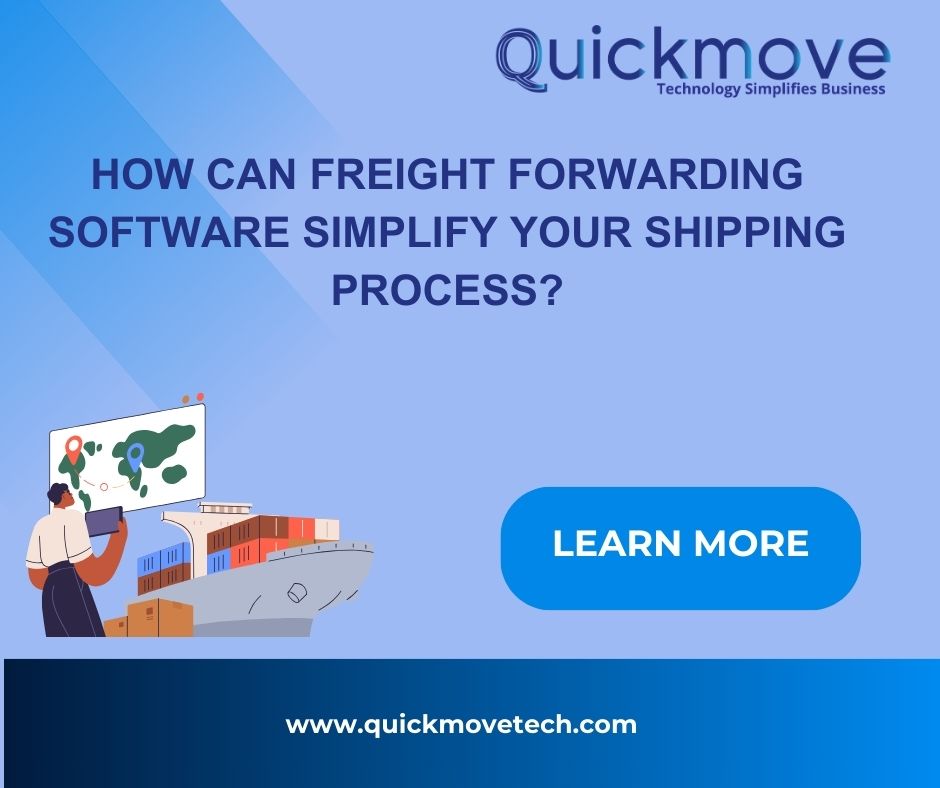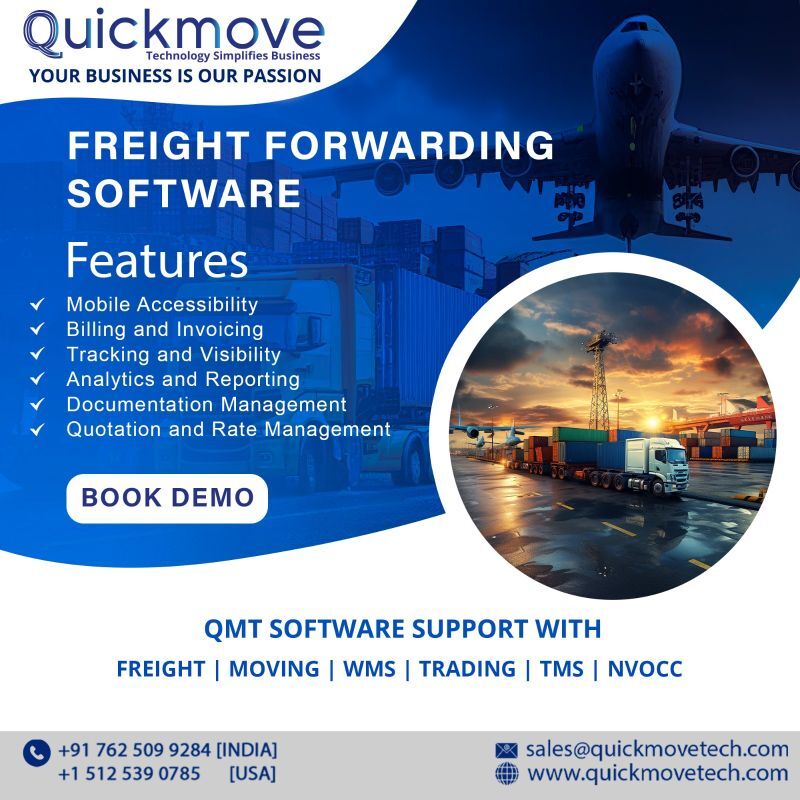Freight forwarding is a complex, dynamic, web of logistics, regulation, and accelerated deadlines. Historically, many in the field used traditional, frequently siloed, systems to operate their business. But with the growing complexity of international trade, combined with the need for real-time visibility and effortless collaboration, cloud-based solutions have become not an amenity, but a necessity to compete. In this new environment, cloud-hosted freight forwarding software is turning out to be the solution for opening up efficiency, streamlining processes, and, in turn, remaining competitive.
Imagine, for instance, a fictional company called Quickmove. Quickmove had used to have a quilt of emails, independent systems, and spreadsheets. It was a chore and a hassle to monitor shipments, communicating with foreign-based agents could be glacially slow at times, and keeping customers up to date with the minute-to-minute details of it all was hard work. Errors were common, which made the delays that are the ultimate cost-killer and dissatisfied customers. This picture, regrettable as it is, is still prevalent among those freight forwarders who have not yet seen the potential of the cloud.
Nowadays, though, the advent of advanced freight forwarding software provided through the cloud provides a revolutionary answer. This technology consolidates every significant operation onto one, easy-to-use platform. For Quickmove, this translates into one system to book, monitor shipments real-time across multiple modes of transportation (air, sea, land), process documentation (bills of lading, invoices, customs declarations), and interface efficiently with partners and customers globally.
How Cloud-Based Freight Forwarding Software Powers Operations Today:
Benefits of cloud-based freight forwarding software like that used by Quickmove today are many and most obviously the opposite of today’s challenges for freight operations:
- Greater Visibility and Real-Time Tracking: No longer following updates through hundreds of emails.Cloud platforms provide complete real-time visibility of all shipments, making it possible for Quickmove and its customers to track the movement of goods from origin to destination. Proactive visibility enables instant detection of problems and timely intervention, minimizing disruptions and customer dissatisfaction.
- Enhanced Communication and Cooperation: Cloud-based platforms provide for smooth collaboration and communication among all parties.The information is exchanged in real-time, reducing delays and miscommunication. For example, revised documentation or changes in shipping status are instantly available to everyone.
- Streamlined Documentation and Automated Workflows: The amount of paperwork that accompanies freight forwarding is staggering. Cloud software automates the preparation, exchange, and tracking of critical documentation, eliminating manual errors and conserving precious time. Automated processes for operations such as booking confirmations, customs submissions, and invoicing further enhance Quickmove’s operational efficiency.
- Increased Efficiency and Productivity: With the automation of standardized tasks and centralized information, cloud-based freight forwarding software empowers Quickmove’s team to accomplish more strategic tasks. This leads to increased productivity, reduced operational expenses, and the ability to handle more shipments without a proportional increase in workload.
- Scalability and Flexibility: The cloud, by definition, is scalable. If Quickmove’s business is growing, their software can scale because it could handle more data and user requirements without massive capital investment in hardware or infrastructure. This is unavoidable in an unpredictable world economy.
- Data-Driven Insights and Reporting: Cloud-based systems tend to come with sophisticated reporting and analytics features integrated into them. Quickmove can apply the information to inform meaningful insights in their business, spot trends, re-direct with a view to being more efficient, and even make data-informed business decisions. The foundation of an organization’s development and remaining competitive hinges on data-driven insights.
- Accessibility and Mobility: Cloud-based software’s greatest advantage lies in the fact that it can be accessed from any corner of the world with an internet connection. Quickmove’s personnel can see important information and manage operations if they are in the office, at a customer meeting, or on the road. This mobility adds response and speed of decision-making.
Potential Drawbacks of Cloud-Based Freight Forwarding Software
While the advantages are persuasive, note should be made of potential disadvantages in using cloud-based freight forwarding software:
- Internet Dependence: It requires constant and reliable internet connectivity in utilizing and accessing cloud-based software.
- Data Security Concerns: Despite the fact that good cloud providers spend a tremendous amount of money on security features, some Forwarders might worry about the privacy and security of their precious data on third-party servers. Quickmove should opt for a provider with strong security protocols and additional compliance certifications.
- Vendor Lock-in: Changing to a different software platform is a complex and time-consuming process. Quickmove needs to critically evaluate the long-term viability and cost model of their chosen provider to avoid potential vendor lock-in.
- Constraints of Customization: All cloud-based solutions do provide some level of customization, maybe not always precisely tailored to the very unique requirements of any particular freight forwarding business. Quickmove may have to modify some of their current processes in order to accommodate the capabilities of the software.
- Chances of Downtime: The systems using cloud services are sometimes not available, meaning access to Quickmove’s access systems can be shut down temporarily. This calls for a service level agreement from a provider to ensure access is maintained with minimal shut-downs.
Conclusion:
Regardless of these possible disadvantages, the benefits of cloud-based freight forwarding software greatly exceed the drawbacks in today’s challenging logistics landscape. For Quickmove-type companies, a move to the cloud is not an option but a necessity for expansion and survival. The increased visibility, greater collaboration, automated processes, and insight gained through such solutions are critical for navigating the complexities of international trade and maintaining success in an age of freight forwarding. The future of successful and efficient freight operations lies in the cloud.




